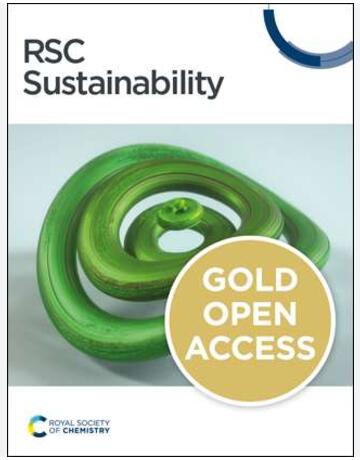基于人工智能的智能建筑融入智慧城市评估框架
IF 3.3
3区 环境科学与生态学
Q2 ENVIRONMENTAL SCIENCES
引用次数: 0
摘要
智能建筑(SB)与智能城市(SC)的融合对城市发展至关重要,并有可能提高智能城市的绩效。人工智能(AI)应用已成为促进智能建筑和智慧城市发展的一种前景广阔的工具。作者应用了一种基于人工智能的方法,特别是作为人工智能专家的 OpenAI ChatGPT-3 和 Google Bard 的大型语言模型,对代表五个 SC 基础设施领域(能源、交通、水、废物管理和安全)的 SB 服务的 26 个标准进行了独特的评估,强调了它们对将 SB 纳入 SC 的贡献,并量化了它们对 SC 的效率、复原力和环境可持续性的影响。然后,通过两轮德尔菲法,利用人类专家知识和建立共识的迭代过程,对该框架进行了验证。五个案例研究证明了该框架在分析复杂信息和产生重要见解方面的效率。这些研究结果有助于深入了解 SB 服务对 SC 基础设施领域的影响,突出了 SC 的复杂性,并揭示了需要进一步整合以实现 SC 性能目标的领域。本文章由计算机程序翻译,如有差异,请以英文原文为准。
An AI-Based Evaluation Framework for Smart Building Integration into Smart City
The integration of smart buildings (SBs) into smart cities (SCs) is critical to urban development, with the potential to improve SCs’ performance. Artificial intelligence (AI) applications have emerged as a promising tool to enhance SB and SC development. The authors apply an AI-based methodology, particularly Large Language Models of OpenAI ChatGPT-3 and Google Bard as AI experts, to uniquely evaluate 26 criteria that represent SB services across five SC infrastructure domains (energy, mobility, water, waste management, and security), emphasizing their contributions to the integration of SB into SC and quantifying their impact on the efficiency, resilience, and environmental sustainability of SC. The framework was then validated through two rounds of the Delphi method, leveraging human expert knowledge and an iterative consensus-building process. The framework’s efficiency in analyzing complicated information and generating important insights is demonstrated via five case studies. These findings contribute to a deeper understanding of the effects of SB services on SC infrastructure domains, highlighting the intricate nature of SC, as well as revealing areas that require further integration to realize the SC performance objectives.
求助全文
通过发布文献求助,成功后即可免费获取论文全文。
去求助
来源期刊

Sustainability
ENVIRONMENTAL SCIENCES-ENVIRONMENTAL SCIENCES
CiteScore
6.80
自引率
20.50%
发文量
14120
审稿时长
17.72 days
期刊介绍:
Sustainability (ISSN 2071-1050) is an international and cross-disciplinary scholarly, open access journal of environmental, cultural, economic and social sustainability of human beings, which provides an advanced forum for studies related to sustainability and sustainable development. It publishes reviews, regular research papers, communications and short notes, and there is no restriction on the length of the papers. Our aim is to encourage scientists to publish their experimental and theoretical research relating to natural sciences, social sciences and humanities in as much detail as possible in order to promote scientific predictions and impact assessments of global change and development. Full experimental and methodical details must be provided so that the results can be reproduced.
 求助内容:
求助内容: 应助结果提醒方式:
应助结果提醒方式:


